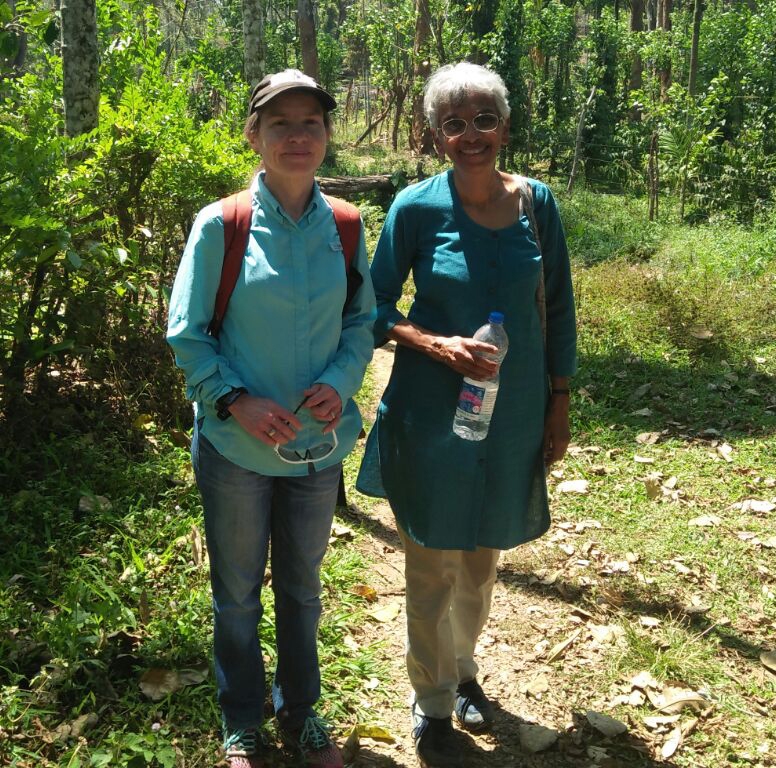Meet the Editors: Q&A with Professor Prof. Hélène Carabin, editor for Parasitology
Welcome to our “Meet the Editors” series, where we interview the editorial team about their work and their relationship to the journal. In this post we meet Professor Hélène Carabin, Editor for Parasitology
What is your current job title both within Parasitology and outside of the journal? Where are you based in the world?
Within Parasitology, I am an Editor. Outside of the journal, I am a Full Professor at the Department of Pathology and Microbiology, Faculté de Médecine Vétérinaire and the Department of Social and Preventive Medicine, École de Santé Publique, Université de Montréal in Canada. I am also the Tier 1 Canada Research Chair in Epidemiology and One Health. I am the director of the Groupe de Recherche en Épidémiologie des Zoonoses et Santé Publique (GREZOSP), co-lead of the Global One Health network on the governance of infectious diseases and antimicrobial resistance (global1hn.ca) and I am co-directing the One Health modelling network for infectious disease (OMNI-RÉUNIS). Finally, I co-lead the Global One Health pillar of the Centre de recherche en santé publique (cresp.ca).
In a few sentences, please describe the focus of your work. Which parasites do you study? What is the goal of your research? What approaches do you use in your work?
Before COVID-19 hit, I was mostly working on neurocysticercosis, but have also worked on evaluating the burden of cystic echinococcosis with Christine Budke. I have also touched upon the zoonotic aspects and epidemiology of Schistosoma japonicum in the Philippines, as well as on modeling onchocerciasis among the Yanomami of Ecuador. During my post-doctoral training, I applied transmission dynamics models to estimate the cost-effectiveness of distribution of praziquantel among school aged children to control schistosomiasis in Egypt.
When did you first become interested in parasitology as a field? Did a particular teacher or mentor direct your career path?
My first love was actually with epidemiology, but also with parasitic zoonoses which were well covered in my DMV training. My first parasitology research project was looking at the presence of Toxocara spp. in sandboxes and play areas of daycare centres in Québec, Canada. It’s hard to identify one particular person who inspired my career path, but I did become passionate about epidemiology after Denise Bélanger’s course during my DVM, got really interested in parasitic zoonoses following Alain Villeneuve’s veterinary parasitology class, and received most of my academic career mentorship and inspiration from Theresa Gyorkos at McGill university where I did my PhD in epidemiology. I also have to mention Linda Cowan at the University of Oklahoma Health Sciences Center who served as my mentor but also helped us better understand the neuro-epidemiology of epilepsy caused by Taenia solium.
How did you first become familiar with Parasitology?
When I published (in 2000) the results of our work on the cost-effectiveness of treating school aged children not attending school with praziquantel for schistosomiasis in Egypt.
What motivated you to become an editor at Parasitology?
To keep up-to-date with research on parasitic infections, and a particular interest in zoonotic parasites and their epidemiology (in all species).
What is the best part of editing for Parasitology?
Getting to see the breadth of research going on around the world in parasitology and being continuously fascinated by the ability of these infectious agents to adapt and survive.
Do you have any advice for those submitting to Parasitology?
Structure your manuscript well and make sure to critique your own work with regard to the literature.
What advice would you give to early career researchers who are just starting out in parasitology as a field?
For epidemiologists working on parasitic zoonoses – be patient and persist in trying to get funded. It is a long and frustrating path but you will succeed eventually. And hopefully, Parasitology will contribute to raise awareness about these infections and promote more funding!
Parasitology is an important specialist journal covering the latest advances in the subject. It publishes original research and review papers on all aspects of parasitology and host-parasite relationships, including the latest discoveries in parasite biochemistry, molecular biology and genetics, ecology and epidemiology in the context of the biological, medical and veterinary sciences.









